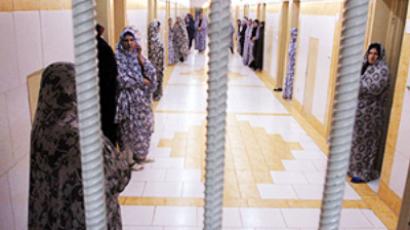Georgian businesses accustomed to standover tactics
While Georgian President Mikhail Saakashvili likes to portray an image of his country as free and democratic, many say his version of democracy is at odds with their experience.
The so-called “patchwork baths” in central Tbilisi is the perfect place to relax and have your photo taken on the way out. The historical building is now owned by a private company, but a few years ago, it was taken from its previous owner by the government.
Grigol Khizeneishvili still fears for his life. He says in 2007, he was approached by government agents who claimed he had used illegal schemes to purchase the baths. Allegedly through the use of threats, the officials forced the man to give up his business. Going to court, says Grigol, was not an option: his family received threats of physical violence.
“They said that they would make me sell everything, and still it wouldn’t be enough to pay them off, and I’d be begging for mercy. I couldn’t have done anything, but donate my business to the state,” Khizeneishvili explained.
Immediately after seizing the property, the government sold it off. Since then, Grigol has been trying hard to get his business back, but his complaints remain unanswered.
According to human rights activist Eka Beselia, this case is not unique. There have recently been numerous cases of the Georgian government illegally seizing buildings, land and other property from private individuals, large and small companies.
“When the authorities openly use the police and the prosecutor’s office to take away people’s property there’s no other word to call it, but ‘terror’. It’s a kind of official racketeering – aggressive, illegal and purely criminal in its nature. We can say directly that Mikhail Saakashvili’s team is responsible for terrorizing the business sector,” Beselia said.
Some Georgian entrepreneurs blame the greed and political ambitions of the country’s leaders. These businessmen say that, in order to work safely in Tbilisi, you have to make generous donations to the ruling party.
“All powerful entrepreneurs in Georgia make voluntary donations by paying off the government during the elections,” said Merab Janiashvili, from the Association of Young Financiers and Businessmen.
“Just take a look at the list of companies that sponsored the United National Movement. This information is open to the public. All large companies are on the list – from the pharmaceutical sector to road construction companies. And all of them pay no less than US$55,000. These are official sums. We can only guess how much they have to pay unofficially.”
While Georgian officials claim that they have created a corruption-free economy. To those who have lost their businesses due to pressure from the state, it’s nothing but spin. And even though only a few entrepreneurs dare to speak out, it looks like the movement against such racketeering in Tbilisi is getting stronger.













